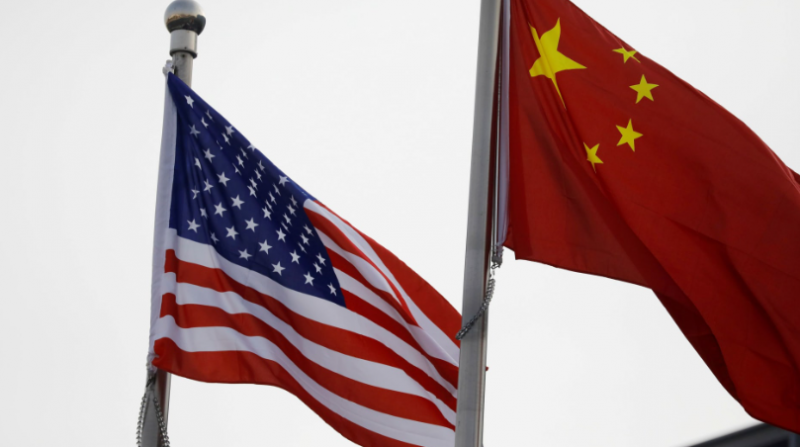
USA; ESG is now a contentious political topic in the US. It serves as the country's battle cry in China. According to a promotional video airing on Chinese state media, environmental, social responsibility, and governance are ways to "use the power of corporations to achieve a more beautiful society."
State-controlled businesses are increasing their voluntary ESG disclosures as a result of Beijing's encouragement. To entice the investing public, asset managers are releasing new products.
Additionally, at a forum last month, Guo Xiangjun, the deputy chief investment officer of China's $1.35 trillion sovereign wealth fund, predicted that sustainable investing "will prevail."
Also Read: Elon Musk has been warning the US government that a default on its debt is only a matter of time
Beijing hopes that embracing ESG will inspire investors both domestically and internationally. The response has been uneven thus far.
Nevertheless, the political criticism of the movement in the US stands in stark contrast to China's enthusiasm. A coalition of about 20 states, led by Florida Governor and presumptive presidential candidate Ron DeSantis, says it is intent on outright banning ESG investing. Numerous Republican politicians at the state and federal levels have lobbied against ESG.
The term has since been dropped by money managers in response to threats from conservative states to withhold billions from BlackRock over CEO Larry Fink's support for ESG.
China is moving the opposite way. Beijing, which has committed to becoming carbon neutral by 2060, is working to reduce the nation's reliance on coal and increase the number of wind and solar farms, which are already among the largest in the world.
The majority of the largest businesses in the nation are following suit. By the end of 2022, Hwabao Securities Co. estimates that 65% of publicly traded central state-owned enterprises (SOEs) will publish ESG reports, which is twice the disclosure rate for all Shanghai and Shenzhen-listed companies.
According to a representative from the research centre of the State-Owned Assets Supervision and Administration Commission, all central SOEs that are publicly traded are anticipated to disclose ESG data by the end of the year.
Also Read: UK National Statistics Service: salaries continue to lag behind rapidly rising inflation
The increased focus on ESG and the promise of better disclosures appear to have encouraged some investors. An index that measures the performance of central SOEs has increased 11% since the country's top securities regulator proposed a "valuation system with Chinese characteristics" in a speech in November, outpacing broader China indexes.
According to Yang Zhenjian, a fund manager at Bosera Asset Management, the idea could imply a premium for SOEs that support national goals, which is consistent with ESG investment principles. Investors should pay attention to SOEs that prioritise the market and exercise greater social responsibility, Yang continued.
According to Morgan Stanley analysts, the lack of disclosure has long been a barrier for foreign investors interested in China, so the additional ESG information will be appreciated.
MSCI, a well-known ESG ratings company, is also observing progress. In the past year, 13% of the mainland China SOE issuers in the MSCI All-Country World Index had their ESG ratings downgraded compared to a fifth of them who had them upgraded.
For international ESG investors, particularly those whose standards differ from those of Beijing, more disclosures might not be sufficient. Asset managers are now more aware of the dangers of making investments in autocratic nations as a result of Russia's invasion of Ukraine. Many people disqualified China because of its track record with human rights even before the war.
State-owned PetroChina was flagged by MSCI last month for connections to Xinjiang forced labour, which prompted ESG funds managed by foreign asset managers like BlackRock to sell. China's capital city has refuted the labour claims.
On account of censorship and regulatory concerns, dozens of foreign ESG funds recently withdrew more than US$1 billion from Tencent Holdings. According to Bloomberg Intelligence, Chinese banks currently finance 87% of the world's coal projects and may soon be the only financiers of the industry.
Additionally, recent market performance has been a hindrance. The performance of ESG funds declined last year along with the general markets, and investor interest decreased. According to Morningstar, net ESG flows in China fell 98% to US$1.3 billion in 2022.
Managers of domestic assets think that investors will come back. This month, China Securities Index Co announced that it would introduce two new SOE-focused ESG indices, bringing the total number of ESG-related products across equities, bonds, and multi-asset classes to more than 120.
Also Read: Inflation in Russia drops to just over 3%
Even though there hasn't been a significant increase in assets, investment firms are continuing to launch a "steady flow" of ESG funds as a tactical move, according to Harry Handley of Z-Ben Advisors in Shanghai. These new funds will be added to the 140 billion yuan (US$20 billion) mutual fund market. According to him, the main motivator is probably alignment with broad policy objectives.
According to Morningstar analyst Boya Wang, China is "learning to speak the same regulatory language and ESG is gaining importance globally."